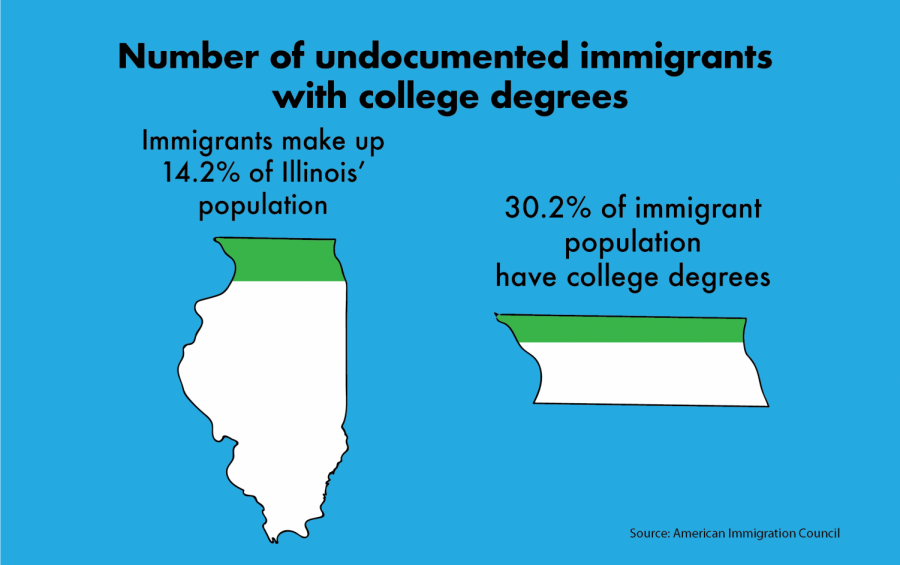Illinois House expands federal aid to undocumented and transgender individuals
April 25, 2019
The Illinois House passed a bill that will offer state-funded student financial aid to undocumented immigrants and transgender individuals who have not registered for the draft.
The Senate finished its first reading of the bill on April 12.
Federal student financial aid is only available to U.S. citizens. Male students who are above age 18 and have registered for military selective service are also qualified.
Agatha Bernat is a social work intern at the New American Welcome Center at University YMCA. She said any person who has the will and determination to pursue a higher education degree should be allowed to do so without any hindrance.
“If you have the knowledge and you have the drive which will benefit not only you but also the larger world, why shouldn’t you have access to that just because of whoever’s decision it was to bring you here,” Bernat said. “That should not prohibit you from getting an education which, in my opinion, is a basic human right.”
Get The Daily Illini in your inbox!
Tom Hardy, executive director of University Relations, said accessibility and affordability of a university degree can transform a person’s life.
Bernat said graduate students who come to the YMCA for help are primarily concerned with how their legal status changes when they are no longer students and how it influences their label and visa status.
Bernat said the YMCA has had outreach from high school teachers asking what kind of financial aid was available to undocumented students.
“(A teacher) was working closely with someone who wanted to apply for college but obviously could not fill out the (Free Application for Federal Student Aid),” Bernat said.
Bernat said the YMCA also works with Central High School in Champaign to provide legal aid for undocumented immigrants to find a way to stay in the country before applying to colleges.
The passage of House Bill 2691, the Retention of Illinois Students Act, would provide access to the state’s Monetary Award Program to students who currently do not qualify for financial aid.
MAP provides grants to Illinois residents attending schools within the state and demonstrate the need for financial aid.
While currently, students can only use MAP grants to fund 135 credit hours, the bill aims to remove that cap to allow students of color from underfunded schools more time to complete a degree program.
Bernat said the bill impacts the University in three ways: transgender students who have not registered for selected service, undocumented students who cannot apply to FAFSA and also the students who have come from under-resourced communities and schools.
Opposition for this bill stands that if all students who became eligible for benefits were to use them, it could add about $9 million to the cost of the MAP grants. This would require lawmakers to allot more money for the program from somewhere else.
Bernat said the Retaining Illinois Students and Equity Act was written because there are a lot of Illinois residents who leave the state for their education and end up living and working out of state.
The RISE Act would provide a clear directive to all Illinois colleges and universities that students who cannot apply for FAFSA and are in good academic standing are eligible for financial aid. It allows institutions of higher education to create an alternative instrument to FAFSA to determine the financial need of residents.
The act aims to encourage students who are ineligible for FAFSA to stay in Illinois and attend Illinois institutions of higher learning.
“Though it may cost the state more money to give financial aid to these students, at the same time, we are retaining these students within Illinois, so we get to reap the benefits of them attaining their education in Illinois, finding jobs here and then giving back to the communities they came from,” Bernat said.







